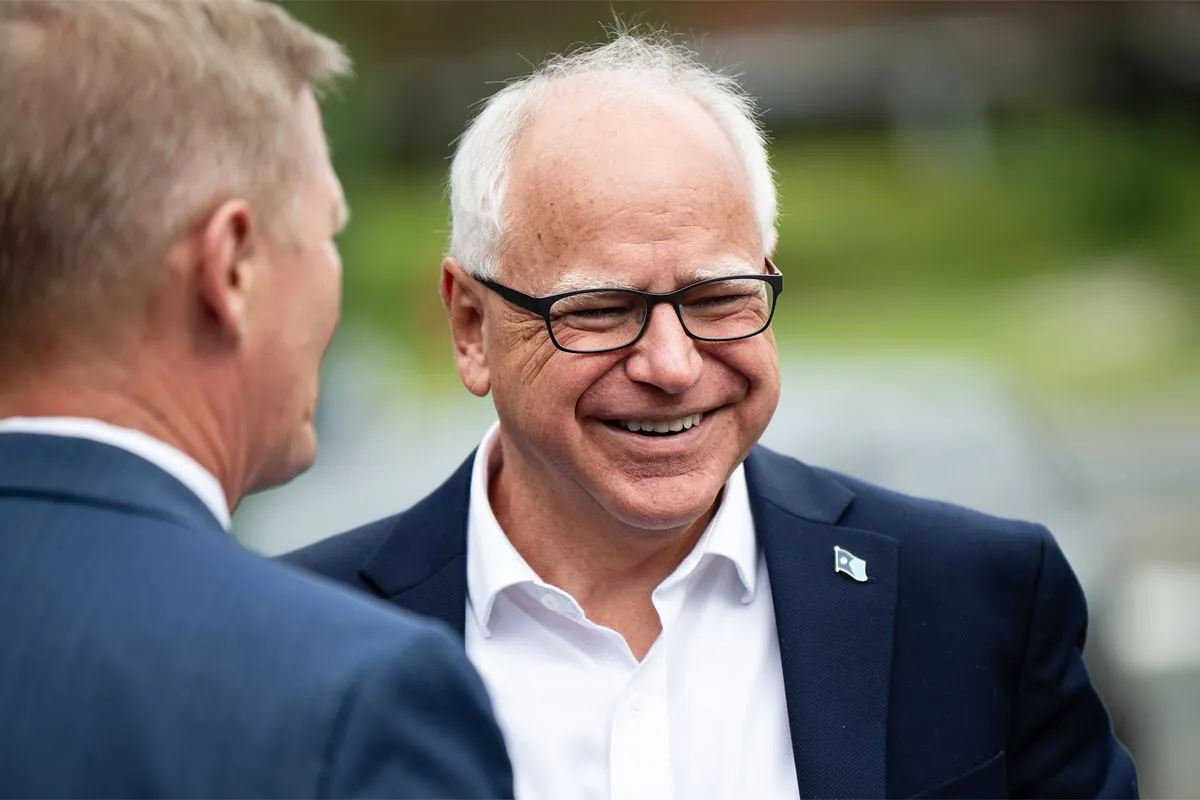In the wake of Joe Biden's departure from the presidential race, Vice President Kamala Harris finds herself at a crossroads, tasked with crafting a distinct foreign policy vision. Her selection of Minnesota Governor Tim Walz as her running mate may prove pivotal in this endeavor.
Harris's campaign slogan, "We are not going back," potentially signals a departure from conventional foreign policy thinking. This approach aligns with a growing consensus among experts, as highlighted in a recent Carnegie Endowment for International Peace study, which calls for a "major strategic reorientation" in U.S. foreign policy.
The Harris-Walz ticket faces several challenges, particularly regarding the Israel-Palestine conflict. Polling data indicates a generational shift in attitudes towards Israel, with younger Americans showing increased concern for Palestinian welfare. This trend presents both an opportunity and a challenge for Harris, who must balance maintaining the U.S.-Israel partnership while addressing the humanitarian crisis in Gaza.
"What can be, unburdened by what has been."
The Republican ticket, featuring Ohio Senator J.D. Vance as the vice presidential nominee, offers its own break from traditional foreign policy. Vance has been critical of U.S. allies, particularly Germany, and advocates for European countries to take greater responsibility for their own security.
Public sentiment plays a crucial role in shaping foreign policy. Recent surveys reveal that Americans favor negotiated settlements in conflicts like Ukraine, reflecting a war-weary nation still grappling with the aftermath of prolonged engagements in Iraq and Afghanistan.
Walz's background, including his service in the Army National Guard and his opposition to various military interventions, could influence the ticket's approach to diplomacy and military action. His past support for the Iran nuclear deal and improved U.S.-Cuba relations suggests a preference for diplomatic solutions.
As the United States recalibrates its global priorities, particularly in light of China's growing influence and Europe's evolving security needs, both tickets must navigate the delicate balance between party orthodoxy and changing voter preferences.
The challenge for Harris and Walz lies in articulating a vision that acknowledges public skepticism of the status quo while presenting a responsible alternative to their Republican rivals. This may involve reaffirming the importance of European allies while advocating for a more balanced trans-Atlantic partnership.
Ultimately, the ticket that successfully offers a new vision for American power in a rapidly changing world may be best positioned to win the upcoming election and shape the future of U.S. foreign policy.
